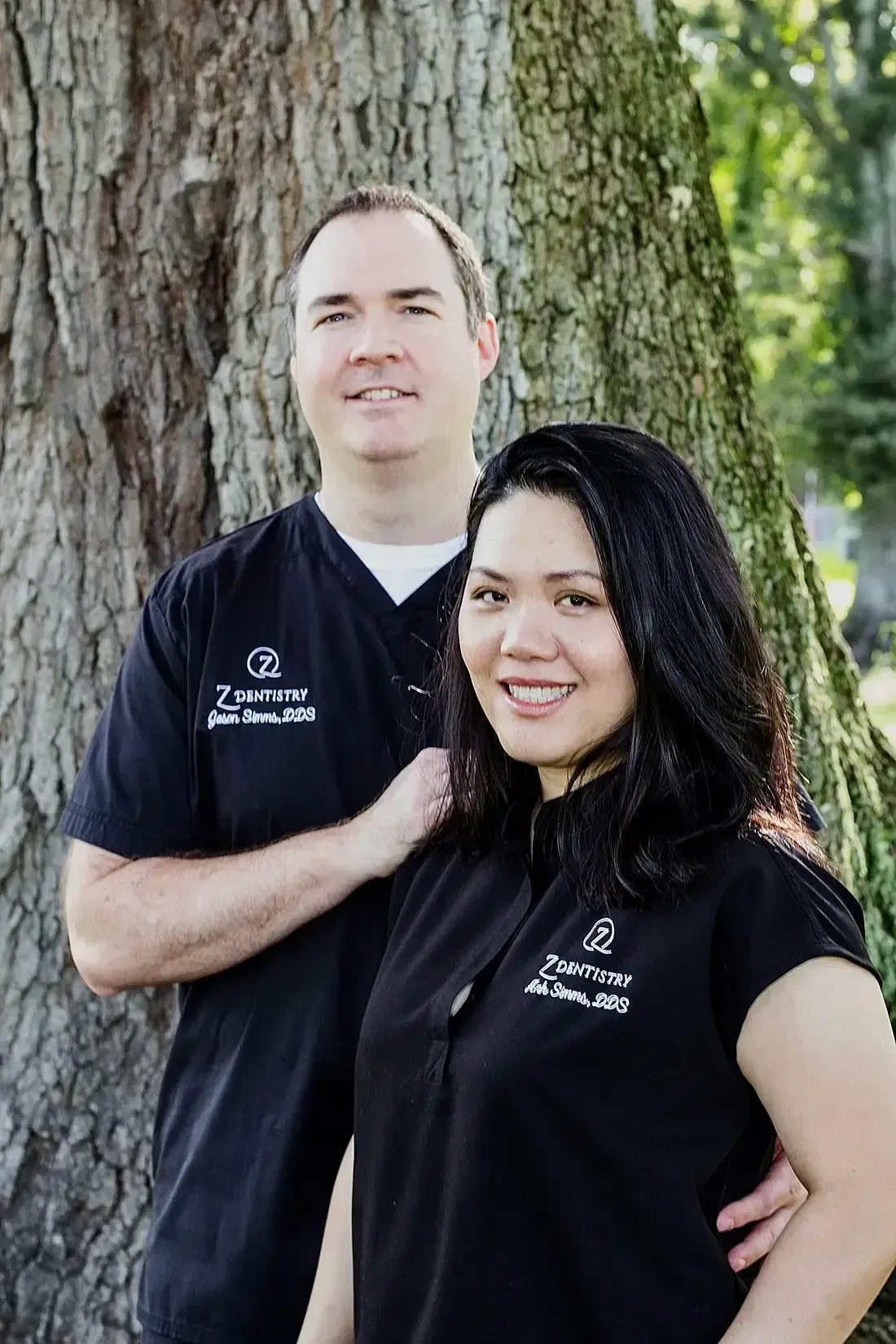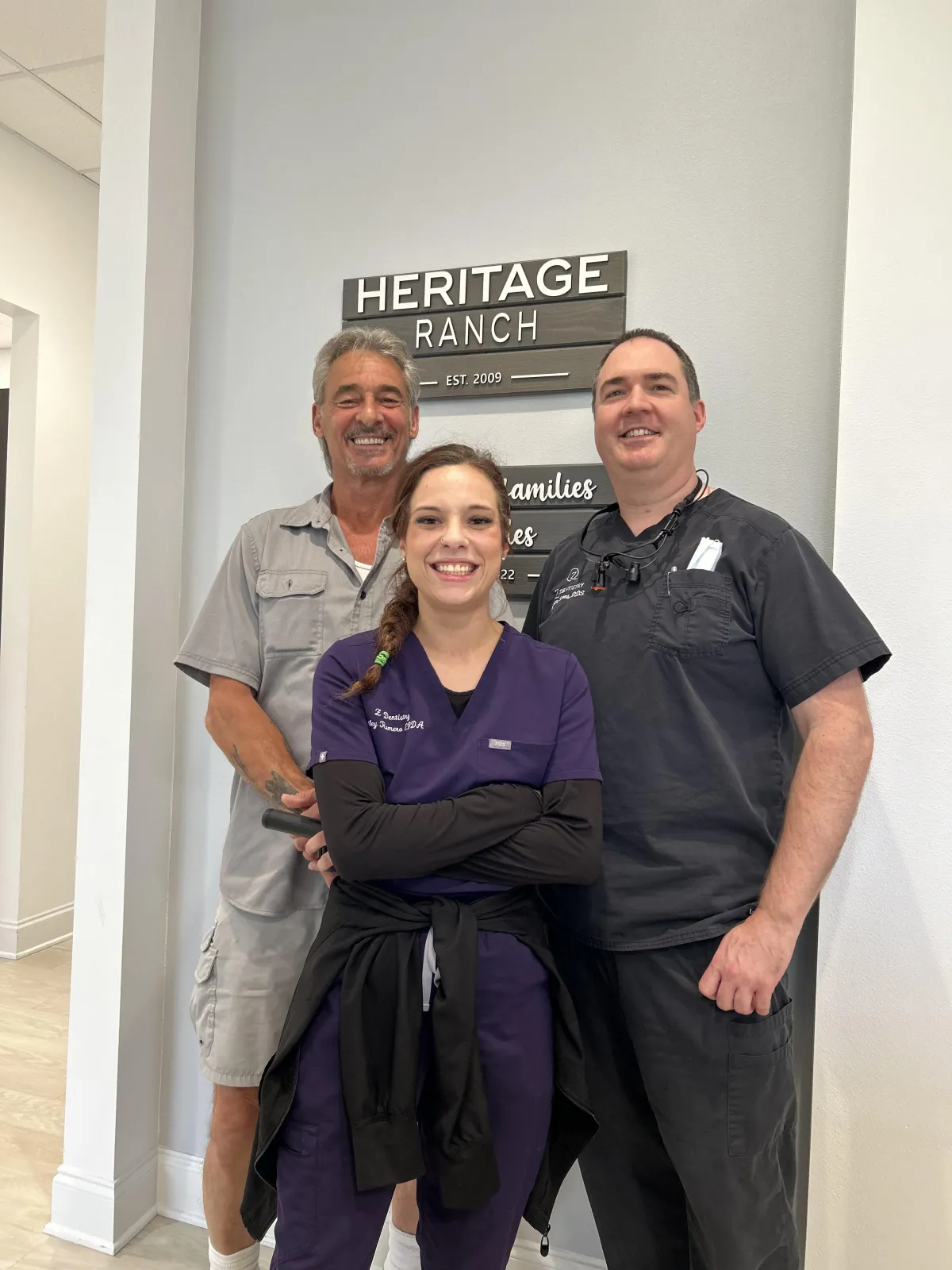dentistry you can trust In Zachary, Louisiana
If you have a smile problem, we can help
Welcome to your One Stop Shop Dentist in Zachary, LA
How Can We Help You?
I have missing or Broken Teeth
I have a dental Emergency
I want a second opinion
is your smile holding you back?
If so, you're not alone—and you're in the right place.
At Z Dentistry in Zachary, LA, we believe dental care should come with no judgment, no pressure, and no confusing choices.
The last thing you need is to feel overwhelmed by options or made to feel guilty. We're here to listen, simplify, and help you get the results you want—comfortably and with No Hassle.
Smile problems don’t fix themselves. Over time, they usually get worse—costing you more money, more time, and more stress.
That’s why we’ve made it our mission to make dentistry easy, understandable, and stress-free.
At Z Dentistry, you’ll find a team that respects your comfort, and delivers the kind of results that make you want to smile again.
Welcome to the Smile Experts.

Meet Dr. Anh and Dr. Jason
If dental Problems keep letting you down… it’s time for a better solution.
We meet people every day who feel like they’ve hit a dead end with their teeth.
They’ve had the same dental work done again and again—crowns, fillings, root canals—only to have it fall apart. Their teeth keep breaking. Cavities keep coming back. And worst of all, they leave the dentist’s office feeling judged, blamed, and discouraged.
If that sounds familiar, you’re not alone. And more importantly—there is a better way.
You don’t have to settle for frustration, shame, or temporary fixes.
If you’re ready for real solutions—and a team that actually listens—we’re ready to help.
No Judgment & no Lectures
Our Promise to You

No lectures. No judgment. Ever.
Fall in love with how your teeth look and feel.
Experience virtually pain-free care like never before.
Enjoy the support of our friendly, attentive team every step of the way.
Discover a personalized plan to minimize cost, pain, inconvenience, and embarrassment—for a lifetime.
What others are saying
"Wonderful Customer Service"
"Wonderful customer service every step of the way. Dr Jason and the rest of the team took great care of me. The office is very comfortable. You can get a warm blanket if you desire.."
- Michelle T.

"Professional, caring, and Friendly"
"The dentists at Z Dentistry gave me the most thorough dental examination I have ever had. The dentists are professional, caring, and friendly. I am happy I found this wonderful dental practice in Zachary.."
- Nancy M.

"I will recommend Z Dentistry to anyone"
"Dr Simms is an amazing dentist and very thorough! He cleaned my teeth himself while explaining my dental needs an options. I will recommend Z Dentistry to anyone in need!!."
- Benny K.

"Totally Painless"
"I received the most thorough examination that I have ever had in my lifetime (over 70 years). My cleaning was outstanding and totally painless. He is truly a very skilled dentist. I will happily return." - J New

Real Patients, Real Results





Judgement Free Dentistry in Zachary, Louisiana
Hours
Mon: 8:00am - 4:00pm
Tue: 8:00am - 4:00pm
WED: 8:00am - 4:00pm
THURS: 8:00am - 4:00pm
fRI: 8:00am - 4:00pm
© Copyright 2025. Dental Care in Zachary, Louisiana . All rights reserved.




